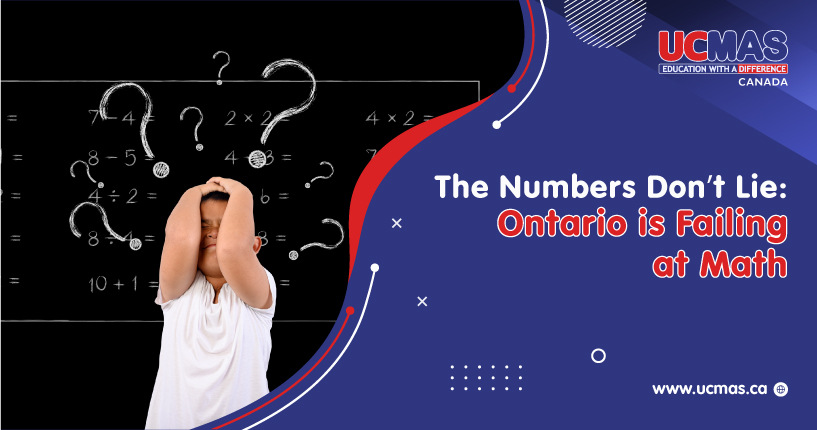Divide, subtract, add, multiply: however, you want to calculate it, Ontario is heading in one direction when it comes to the EQAO math rankings – downwards.
The EQAO test data show that Ontario’s student outcomes are similar to those jurisdictions, whereby ‘the pandemic has had the most significant impact on mathematics as compared to literacy achievement’, according to the most recent test results.
Most students are struggling with math in Ontario as per the study made by these standardized tests. According to this newfound data, only 47% of students met the provincial standard amongst students this year! This is way down from 75% prior to the pandemic 3 years ago!
The sliding EQAO test rankings have created a widespread debate on whether curriculum changes are required in our schools, and maybe afterschool math programs could provide a solution? In the latest edition of Integrative Psychology and Behavioral Science, Dr Marmolejo-Ramos along with researchers from Iran and China discovered that simple gestures such as hand motions are important in helping students understand tough math problems.
Many children tend to struggle with mathematics and there tends to be a lot of anxiety surrounding it as it is an abstract subject. Most children see the numbers, graphs and equations, but seldom do they understand them unless they engage and hone their human motor and sensory skills.
To get math concepts across to children, it is important to bring together language, speech intonation, facial expressions and hand gestures in a safe learning environment according to the researchers. Teaching children to learn by using their hands to create triangular, spherical, circular shapes and straight lines along with reflecting the formulas and calculations you are trying to explain is vital. It helps their brains better understand the concepts and commit them to memory.
Gestures are body movements that are learned from infancy, usually before speech even, so they are ingrained in humans as a way of processing and acquiring new information. Experts even state that hand gestures are more relevant in teaching math than other subjects because they engage our inherent sensorimotor skills which helps children interpret numbers better.
What better way to enhance your child’s math understanding and learning than with the ancient abacus tool which imbibes all the above math qualities?
The shift from face-to-face teaching towards online learning in the past two years due to the COVID19 pandemic has made it all the more challenging for math students. Particularly when the only learning they have had is from a screen and a set of headphones.
Children struggle with math for several reasons. It’s progressively demanding but if they are taught to grasp the basics with the best afterschool math program, the curve is not as steep!
A school year unlike any other is coming to a close, but one thing remains the same: We’re still arguing, in the same old ways, over how math should be taught. Why not try UCMAS Abacus Mental Math afterschool training program for an improved recovery? The Ontario government has recently launched its ‘Catch Up Payments’ initiative, offering parents $200 to $250 per child to offset costs as they support their children as they catch up academically. Are you taking advantage of this to better your child’s grasp of math though?






